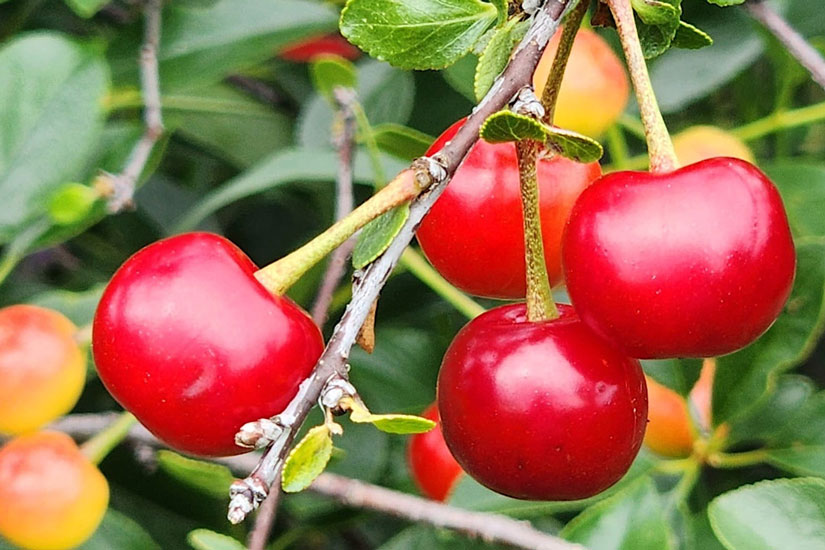
Prairie Horticulture Certificate celebrates 30th anniversary
November 2024 marks 30 years of this one-of-a-kind distance education program developed specifically for the Prairies.
By Brett MakulowichSince 1994, thousands of students have enrolled in the Prairie Horticulture Certificate (PHC). The groundbreaking distance education program offers students the ability to study horticulture at their own pace to prepare for careers in the horticulture industry, start their own businesses, and to nurture a love of plants.
“The Prairie Horticulture Certificate was the first of its kind in Canada to offer a distance education program co-ordinated between both universities and colleges,” said Dr. Karen Tanino (PhD), a professor in the Department of Plant Sciences at the University of Saskatchewan (USask).
Tanino was the founding chair of the PHC and developed the program with the then USask Extension Division and three other Prairie institutions (Olds College, University of Manitoba, and Assiniboine Community College). For 10 years she chaired the curriculum committee of the PHC. Today, the program is offered via a consortium of USask, Olds College and the renamed Assiniboine College.
The PHC was created in response to student inquires for a distance education program in which prairie plants and the environment were reflected in the course material. Prior to the PHC, students only had the option of taking a horticulture diploma offered by the University of Guelph in Ontario.
“There is no other program like the PHC that offers students the opportunity to work at their own pace and at home,” said Jill Turner (BSA'80, MSc'89).
Turner was the program director for PHC from 2010 until her retirement in 2022. Prior to becoming the program director, she was a PHC course designer since the program’s inception and was the instructor of the Indoor Landscaping and the Medicinal and Aromatic Plants courses.
“The program is recognized by the horticulture industry and PHC graduates have an advantage when applying for jobs,” said Turner. “The PHC has become the standard for training for City of Saskatoon employees and other municipal governments. Apprentices in the Landscape Horticulturist stream of the Saskatchewan Apprenticeship and Trade Commission can now take the PHC program instead of having to travel out of province for the educational portion of the apprenticeship training.”
The program’s student audience spans wide with Saskatchewan’s Ministry of Education recognizing the PHC for the Additional Qualification Certificate under the technical or vocational program category for K-12 teachers. Employees in the cannabis production industry have also benefitted from the education offered by the PHC.
Horticulture on the Prairies
Students have the choice of four streams of study in the PHC: fruit and vegetable production, landscaping and arboriculture, greenhouse crop production, or nursery crop production. All streams incorporate the prairie environment and provide effective horticulture skills to succeed in it.
“The climate and the soils of the Prairies are quite unique,” said Lyle Cowell (BSA'85, MAgric'87), developer and instructor for the Soils for Horticulture course since the inception of the PHC, and a senior agronomist for Nutrien Wholesale.
“The Prairies generally have quite rich and healthy soils, with the most often limitation to horticulture being water supply as either rain, snow or irrigation. This is layered with a difficult climate – very cold winters, hot and often dry (but sometimes flooded) summers, and a short growing season. Relative to most other areas this is a unique place to practice horticulture.”
Student success
The PHC is not limited to students who live on the Prairies and often has students enrolled from outside the region. While the program is now online, it was originally paper based with course material and assignments being mailed back and forth between students and instructors. In both versions of the program, students complete hands-on learning experiences at home such as plant propagation.
“PHC course content has been revised over the years to reflect current research, horticulture industry practice, and other important influences such as climate change, organic agriculture, cannabis legalization, and more,” said Lyndon MacNeill, flexible delivery co-ordinator at USask.
The ability of the PHC to continuously grow and adapt over 30 years has led to promising careers for its graduates. Helen Shook’s (CHort'16) career in horticulture has blossomed since graduating from the PHC in 2016. She now works for USask as a research technician and during the growing season she operates Gardenline, where she answers questions from the public. Shook also creates gardening website and social media content in addition to developing courses for the Master Gardener program. She also taught the Fruit Production course for the PHC.
“Learning never ends when it comes to growing plants,” said Shook. “If you are passionate about plants, continuous learning on the job is no hardship, and you will continue to grow as a professional in this rewarding field. The practice of growing plants – whether ornamental or for food – supports the health of the prairie ecosystem and many PHC grads make a difference in increasing local food production.”
Many PHC alumni benefit from the extensive Gardening at USask programming which includes web resources, workshops, events, community interaction and more.
“We provide the opportunity to learn from the best horticulture specialists across the Prairies, while giving people the flexibility they need to support their careers and families,” said Vanessa Boniface, program co-ordinator for Gardening at USask, instructor for the Applied Botany and Woody Landscape Plants courses, and acting program head of the PHC.
The future
As the founding chair of the PHC, Tanino is looking forward to the future of the program.
“The impact of the Prairie Horticulture Certificate is felt from the ground up across the Prairies,” said Tanino. “Our success is planted in our learner-driven approach to grow and adapt with our students, the horticulture industry, and the prairie environment.”
The Prairie Horticulture Certificate offers three intake periods for students throughout the year. To learn more and apply, visit the program’s admissions page.
Article originally published at https://news.usask.ca


